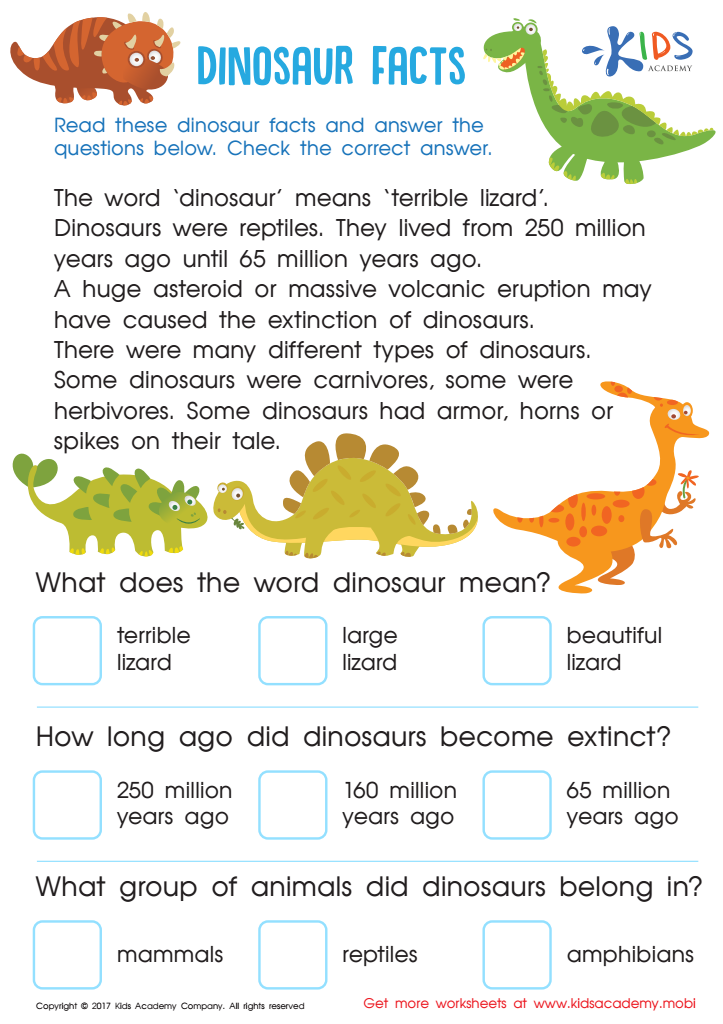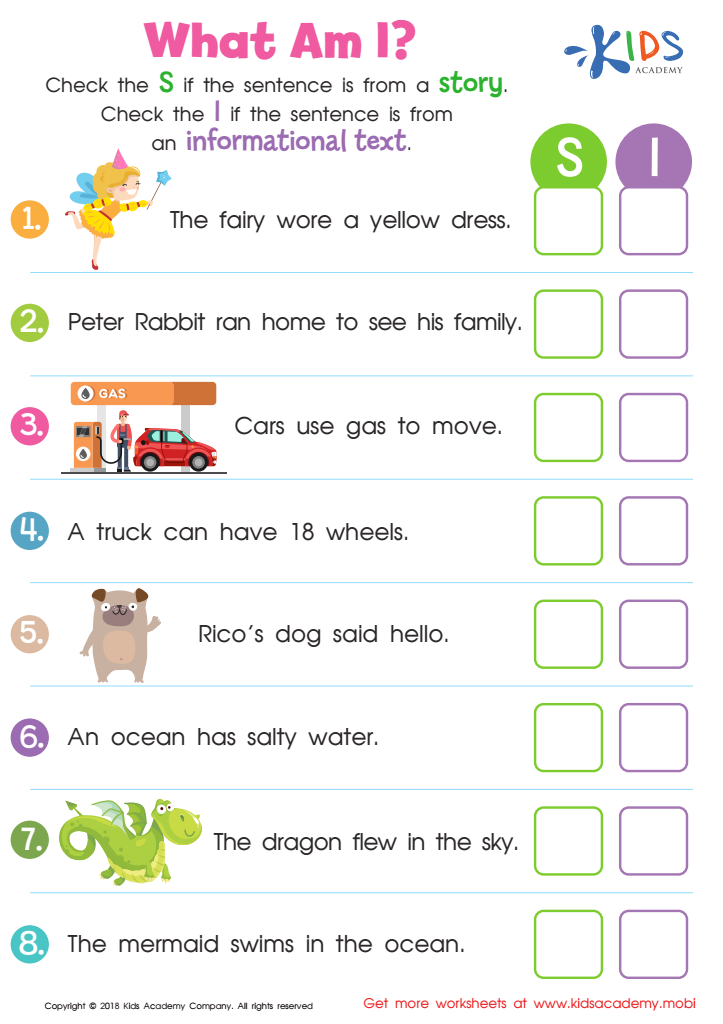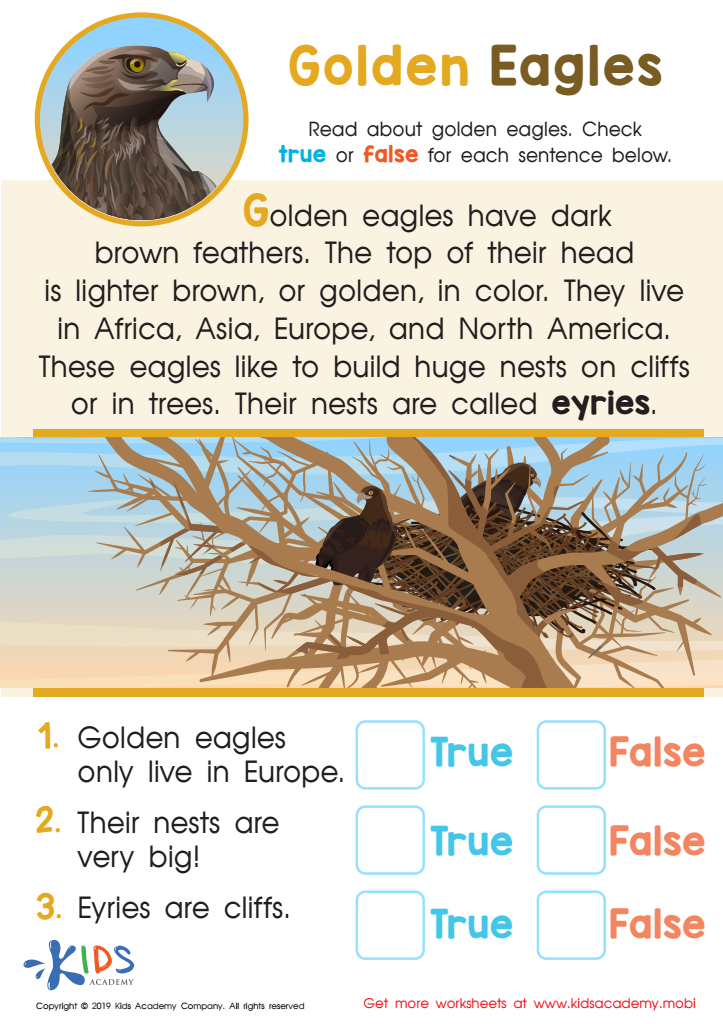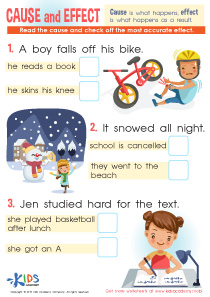Vocabulary Building Normal Reading Non-Fiction Worksheets for Ages 6-8
3 filtered results
-
From - To
Enhance your child's language skills with our Vocabulary Building Normal Reading Non-Fiction Worksheets for ages 6-8! Tailored for early learners, these engaging worksheets feature fun, relatable non-fiction themes that spark curiosity and foster a love for reading. Each worksheet is designed to improve vocabulary comprehension by introducing new words in context, allowing children to grasp meanings effectively. Packed with interactive exercises, your child will enjoy using context clues, matching words to definitions, and expanding their word bank. Perfect for home or classroom use, our resources make vocabulary building easy and enjoyable. Empower your young reader today!


Dinosaur Facts Worksheet


What Am I? Worksheet


Golden Eagles Worksheet
Vocabulary building is a crucial component of literacy development, especially for children aged 6-8. At this stage, children are transitioning from learning to read to reading to learn. Engaging with non-fiction texts allows them to encounter a diverse range of vocabulary in context, helping them to comprehend complex ideas and concepts.
Parents and teachers should care about this because a robust vocabulary not only enriches a child's language skills but also enhances their overall academic performance. Strong vocabulary proficiency is linked to improved reading comprehension, writing skills, and critical thinking abilities, setting a solid foundation for future learning.
Additionally, non-fiction texts expose children to real-world knowledge, which fosters intellectual curiosity and encourages them to explore various subjects, from science to history. By encountering specialized vocabulary and diverse content, children build associations between words and their meanings, enhancing retention and application.
Furthermore, integrating vocabulary-building activities, such as discussions, games, and targeted exercises, promotes engagement and learning. When parents and teachers prioritize vocabulary development through non-fiction reading, they empower children not only to succeed in school but to become lifelong learners equipped to navigate and understand the world around them.

 Assign to My Students
Assign to My Students




















